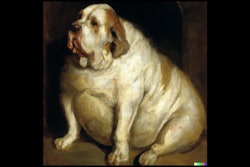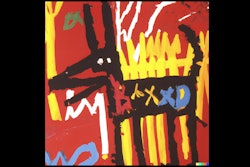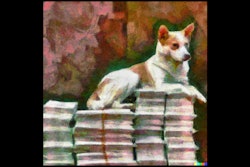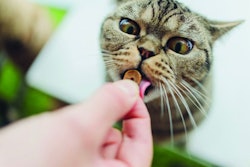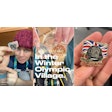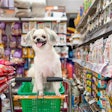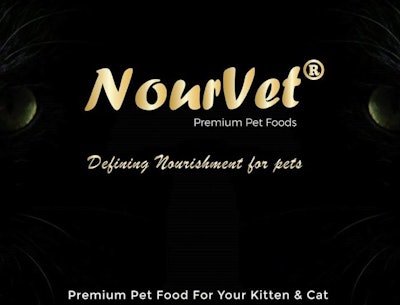
As with many pet food companies, Pakistan-based Nourvet Pet Foods (a portmanteau of nourishment and veterinarian), started from a love for pets, specifically cats. Faizan Ali, operations director of Nourvet, noticed several years ago that cat food was becoming expensive in Pakistan.
“Inflationary pressures, the rupee depreciation and our cats’ nutrition and health were concerning for me,” Ali said. “We looked into basic raw materials, and I joined a U.S.-based online course, Petfood Essentials CONNECT.ED from Watt Global Media, during corona days [the pandemic]. We looked at formulation, machinery, other requirements; we got to meet lots of people to get advice from and to learn from.”
After learning and finding a partner in CEO Liaqat Ali, in 2021, Nourvet began pilot production in Lahore, and did a full year trial run of its cat food products — Nourvet Natural (Chicken) and Nourvet Gold (Fish and Brown Rice) — testing their palatability, acceptability, digestibility and post-production quality assurance. Due to the global pandemic, the company was not able to start commercial-scale production until March 2022.
Cat food formulation and development challenges
The company faced the challenge of how to develop cat food. “Cat food is not easy to make compared to dog food,” Ali explained. “Dogs are less reactive to sensory notes. Dogs’ taste buds are fewer compared to cats; therefore, cats react faster to taste and aroma. Due to this, in Pakistan we are witnessing that dog food manufacturers are easily functioning compared to cat food manufacturers.”
In Pakistan, there is also less of a focus on cat food and cat health, Ali added. “We have been managing this difference with the help of our New Zealand-based nutritionist, who has helped in the formulation of our nutrition profile for cats.”
When Nourvet entered the market in March 2022, there was not much competition for cat food in Pakistan. Only a few other brands, such as Fluffy Pets and Pawfect Cat Food, were already names in the market, due to having achieved strong palatability and quality for cat food.
Importing raw materials: Headache for Pakistani pet food manufacturers
Like other pet food manufacturers in Pakistan, Nourivet has faced challenges. The main problems remain the rupee devaluation against the dollar, high import dependency and import restrictions, particularly on micro-ingredients.
“Thirty percent of our raw materials are import-based — from Italy, U.S. and China,” said Ali. “We are facing serious problems with importing raw materials. People are demanding our product in Pakistan, but certain raw materials are not available in the country, specifically micro-ingredients. Further, raw material quality is hard to maintain, in terms of consistency, due to the import restrictions the government has placed.”
Many of these ingredients are necessary to deliver quality. “Some of these ingredients help cats fight urinary tract infections,” Ali noted. “Others help reduce liver disease. At present, these functional ingredients need to be imported from European countries, but due to import restrictions, procurement is quite a nightmare.”
Limited supply also makes it difficult for the company to increase its overall production or quality. Nourvet’s production is currently underutilized, despite having an extruder plant with a capacity of 500-700 kg/hour and a 15-20 person staff.
“Due to limitation of imported raw materials, we are not able to produce our optimum production capacity,” Ali added. “Quality cannot be achieved due to lack of raw material, so we are underutilized. We make as much as we can get in imported raw material. The main reason is to not compromise on quality.”
Future prospects, appeal for local government support
Ali said the company is closely looking at the political situation in the country. He is hopeful for things to stabilize and to be able to achieve production at capacity by 2024 or 2025. At that point, Ali expects Nourvet to become an exporter, while also expanding into pet treats and supplements.
“Expanding to a second factory is useless to think about until we can get the first one to 100%,” Ali said. “But we are hopeful that by 2024 and 2025, we are able to achieve our optimum production standard and can begin to consider exporting to our neighboring countries.
“We are in a planning stage to expand to pet treats and supplements, and to participate in their marketability,” Ali added. “There is a demand for such things in Pakistan, but it will be a small start.”
To accomplish all of this, Ali talked of the need for local government support. “Our local plan is to build government support for manufacturing overall,” he elaborated. “Then we can help reduce the import pet food bill. That is our promise. We are going to maintain quality to compete against imported superpremium products. But we need support in establishing local companies and product registrations, fewer import restrictions on key raw materials and more investment opportunities.”
